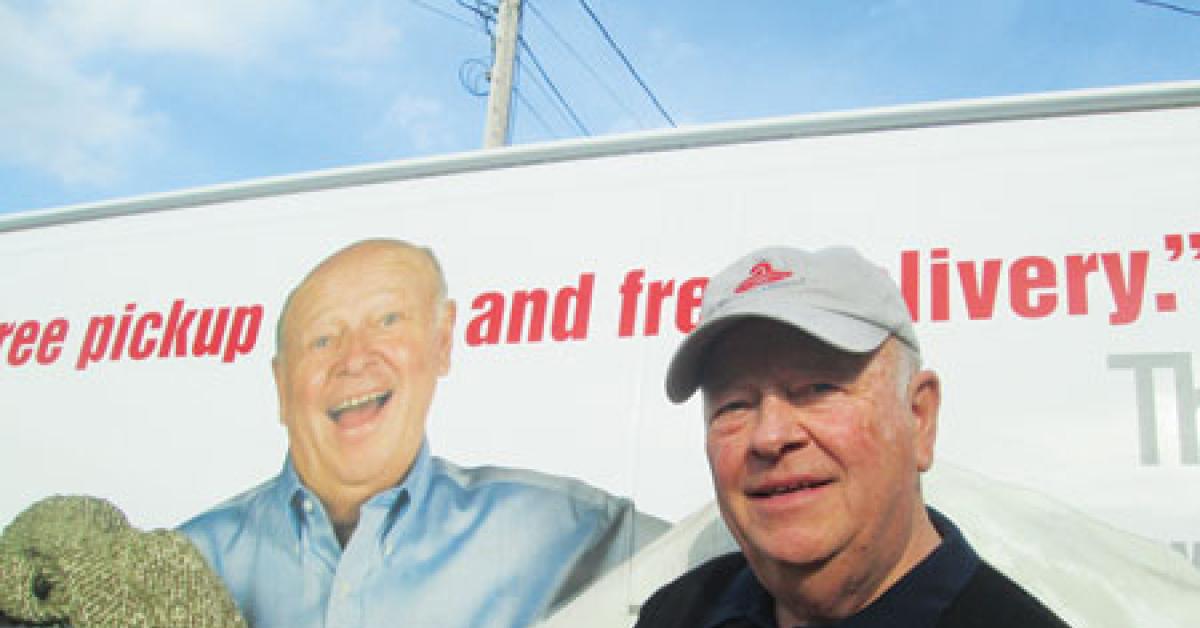PEMBROKE, Mass. — Paul Ceccarelli, former owner of The Cleanist in Plymouth, Mass., says that his cost group was his greatest learning experience.
“At each quarterly meeting, a dozen or so owners would put their information out there, and we’d compare data,” Ceccarelli recalls. “We’d talk over our problems and how we solved them. We reviewed each other’s plans and ideas. Sometimes we’d say, ‘That’s no good.’ But sometimes we’d give suggestions as to how to do something better. This was a big reason that I was able to run a successful business for 37 years. My cost group helped me understand my business.”
BUILDING A CAREER
After college and a stint in banking, Ceccarelli went to work for his father, who owned a small drycleaning/tailoring business in North Plymouth, in 1965. The business was more tailoring, with four seamstresses working in the shop. At the start, Paul found himself pressing. He soon decided that he’d better make changes.
He started a rug cleaning operation and worked to build it up. In 1974, he went into uniform rental as an Apparel Master dealer. He got so busy that his rug trade faltered. By now, there were grumblings from above. Ceccarelli’s father and aunt, who co-owned the business, didn’t agree with the direction the company was heading. So, in 1976, he bought them out and took over running the Cleanist.
In 1978, he purchased a large building next door, a former movie theater, and renovated it into a plant. Four years later, he computerized his operation with a POS system, which paved the way for expansion.
In the ’80s, he began expanding his territory by opening drop stores. First there was Duxbury, then West Plymouth, then Kingston. In 1994, needing money to foot the bill for his four children in college, he sold the uniform rental business to Aramark. Then he continued expanding with more drop stores in Plymouth. In 2002, he began—or, rather, re-introduced—route delivery.
In 2013, with his children doing well on their own and expressing no interest in taking over, he sold his business. The 72-year-old worked in the drycleaning business full-time for 48 years, owning his own dry cleaner for 37 of those years.
That’s a lot of managing, and he took advantage of many things to assist him and his managers and employees. He fully computerized his operation so that he knew information on a daily basis.
”I received the figure each drop store did daily and if there was a discrepancy, I wanted to know why,” Ceccarelli says. “Alright, maybe if there was a small discrepancy, I put it aside as a potential obligation, but if it happened again the next day, I took action. Without such control, running a multi-store chain is not possible.”
Ceccarelli had to adapt to changing conditions and markets.
“It is a different world now than when I first entered the industry,” he says. “My father had four tailors working for him. People took care of their clothes back then. Today, everything’s disposable. And, of course, the casual-wear trend has really cut into the business. We tried to cater to the market.”
MAKE IT CONVENIENT
Ceccarelli always sought to adjust his business to take advantage of opportunities.
“Convenience is the biggest factor,” he says. “I believe that convenience is even more important than quality cleaning. If you have a convenient location, with ease of entrance and egress, with open front parking, and are in an active upscale area of stores, you’ll do OK.”
He knew his costs and responded when change was called for. For example, he needed his drop stores to do $4,000 to $5,000 each week in volume. “I moved locations even though I poured a lot of money into a store. It’s all a matter of doing the necessary volume. If the numbers aren’t there, make a change.”
Of course, part of drop-store success is having the right counter people. To this end, Ceccarelli paid particular attention to store managers and counter staffers. In-store training was a must.
“Staffers must know how to handle every situation and how put the customer at ease,” he says. “It’s understanding of the cleaning process that gives the staffer confidence. Just putting a body behind the counter is unacceptable. Customers will go elsewhere.”
Check back Tuesday for the conclusion!
Have a question or comment? E-mail our editor Dave Davis at [email protected].

